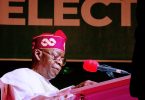The impact of technology in teaching and learning cannot be overemphasized. There is hardly a field of human endeavors left untouched by this new trend in scientific world. Any teacher in this century without full knowledge of what technology entails is assumed to belong among the chthonians.
There was this inadequate information about the relevance of technology in the field of linguistics until recently when David Crystal, in his desperate efforts to disabuse some feeble minds of their erroneous perception, took us on intellectual excursion on technolinguistics,in his book: LANGUAGE AND THE INTERNET

Crystal explored the impact technology has on short text messages. But my concern here is unrelated to SMS. I have deemed it fit to explore how technology has aided and is aiding the teaching and learning of English language, especially at all school levels.
In the days of old when the teachers of our teachers were exploring the linguistic world, then, it was a herculean task to get necessary information that would facilitate their learning of the language. In fact, whatever information given to them by their teachers would be gladly accepted unverified. And after passing through the rigorous learning challenges, they were confronted with the rigor of disseminating the information, for they only possessed little information about the language. All aspects of English suffered.Phonics was taught withoutwithout necessary audiovisual materials.
The emergence of TECHNOLOGY has simplified the linguistic-pedagogic activities. Teachers of nowadays are not passing through any stress to disseminate information, courtesy of this scientific innovation, both in and outside the classroom. How has technology simplified this?
First, technology helps in getting first-hand information on any topics in English. A language teacher no longer need to decorate his library shelves with books that go into extinction in the neighborhood of two years, in the name of new edition. With internet, one gets the latest information on the topic at hand,and in any form of one’s choice. This removes the stress of consulting dozens of books to prepare and form notes. Besides, it is believed that no one has it all. And topics in English are presented in different pedagogical methods. Where a teacher is bankrupt of method to employ in his or her class, online teachers are consulted to quickly render some help. Audio-visual classes are legion on YouTube to quench the thirst of us teachers of English. Some are sometimes taken to the classes for the pupils to see.
Also,in the area of phonology, technology is leaving no stone unturned. Since we are not native speakers of English, the language is always in a fierce battle with the existing Nigerian languages.Wrong pronunciations are conspicuously noticeable in our conversations. Introduction of Audio-visual Phonics applications on mobile phones has librated the linguistic field. Teachers can go to their classes with those materials, play them to the hearing and sight of their pupils.
Finally, technology has drastically reduced the workload of editors. Vetting pages of essays is not a tea-party. Through technology, the computer is wonderfully playing the role of an editor.Applications abound that automatically vets all information imputed in the system. What a wonderful technolinguistic trend!








